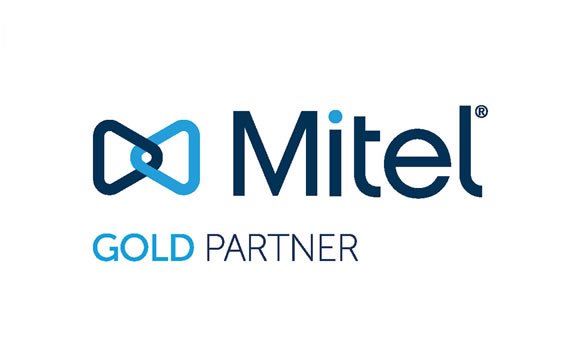The decision to buy or rent a phone system holds substantial weight, significantly impacting a company’s financial trajectory and operational efficiency for years to come.
This guide helps unravel the complexities surrounding this decision, offering insights into the different models available and helping you determine the most suitable option for your business.
Traditionally, businesses invested in on-premise phone systems, owning the equipment outright. However, the emergence of cloud-based solutions introduced a subscription model that appealed to many.
It’s important to note that the rental model also extends to on-premise solutions.
Moreover, there’s an option to own a dedicated server in the cloud—an off-site physical asset you possess. Regardless of the path chosen—be it on-premise or cloud-based—you can opt to:
- Purchase an on-premise phone system
- Rent an on-premise phone system
- Purchase a dedicated server in the cloud
- Rent a cloud-hosted phone system
Hence, both buying and renting avenues exist, compelling businesses to ponder: which model—buy or rent—best aligns with their needs?
Understanding Buying and Renting Agreements for your Business Phone System
The terms “buy” and “rent” may seem straightforward, but various models exist within each category:
- Rent: Pay a monthly fee to the service provider for equipment usage
- Lease: Pay a monthly fee to a lender who has financed your equipment, often with an option to buy at the lease end
- Purchase Outright: Acquire all equipment upfront
- Purchase with Financing: Finance all or part of the equipment, considered an outright purchase for the service provider, but repaid to the lender with interest
Buying or renting a phone system bears lasting implications for any business. Each option carries attributes that could be advantageous or disadvantageous, contingent upon the company’s overall strategy and unique circumstances. Here’s a comparative analysis across key considerations:
Purchasing and Tax Strategy
Your purchasing and tax strategies play a pivotal role in decision-making. Buying outright entails a capital expense, providing benefits like yearly depreciation for tax purposes.
On the other hand, renting constitutes an operating expense deductible from taxes. Engaging with tax experts is prudent to assess the implications of buying versus renting on your tax profile.
Upfront Investment and Monthly Fees
Buying demands an initial investment to procure all necessary equipment. However, this upfront cost might be substantial and requires consideration of ongoing support expenses, as maintaining the purchased phone system becomes your responsibility.
Renting, conversely, requires minimal to no upfront investment. While the cumulative monthly fees over time might surpass buying costs, subscription plans typically include support services.
Business Phone System Support Structure and Fees
Rental agreements usually encompass the following:
- Equipment coverage
- Ongoing maintenance and support
- Warranties for the agreement duration
- Potential software/hardware upgrades
When buying, you assume responsibility for maintenance, which likely necessitates IT staff. At a minimum, a support contract with a Managed Service Provider will be required.
Warranties typically expire as per manufacturer policies (often after a year). Human resources constitute a significant expense; thus, evaluating IT staff costs is crucial when weighing rent versus buy options.
Level of Control
Buying offers complete control over hardware, software, and service, empowering companies to dictate user experiences with minimal risk of degradation due to server sharing. However, it entails supporting the system internally, which is suitable for some but not all businesses.
Renting absolves you of support responsibilities as the service provider manages everything. Yet, it relinquishes some system control.
Determining Your Phone System Strategy
Several factors necessitate contemplation:
- Is your preference for capital or operating expenses?
- Do you envision owning the phone system as a business asset or favor the subscription model?
- What’s your current financial stance, and does it align with buying outright or require exploring lease/financing options?
- Assessing the requisite control over hardware, software, and user experience.
- Evaluating internal tech support capabilities versus reliance on service contracts.
- Constructing long-term cost projections to compare short and long-term expenses, factoring in upfront costs, monthly fees, support expenses, replacements, and tax implications.
Moving Forward
Consulting a trusted partner with experience in this domain can elucidate uncertainties and assist in making an informed decision—whether buying or renting a phone system—that best harmonizes with your business objectives and financial outlook.
Periodic reassessment of your phone system strategy remains imperative to ensure alignment with your business’s changing needs and market trends.
Update: As of 2024, the business communication landscape continues to evolve, with technological advancements offering newer phone system options. The prevalence of hybrid work models and the demand for flexibility and scalability have led to the further diversification of phone system solutions.
Businesses now have more robust and customizable choices, incorporating elements of both ownership and subscription models, allowing tailored solutions to suit diverse operational requirements.

Cady Business Technologies is proud to be a Mitel Gold Partner.
Our strong relationship with Mitel over many years allows us to offer the reliability and expertise your Mitel solution requires.
Contact us today to help create a plan that will support your business needs and budget.
</di



